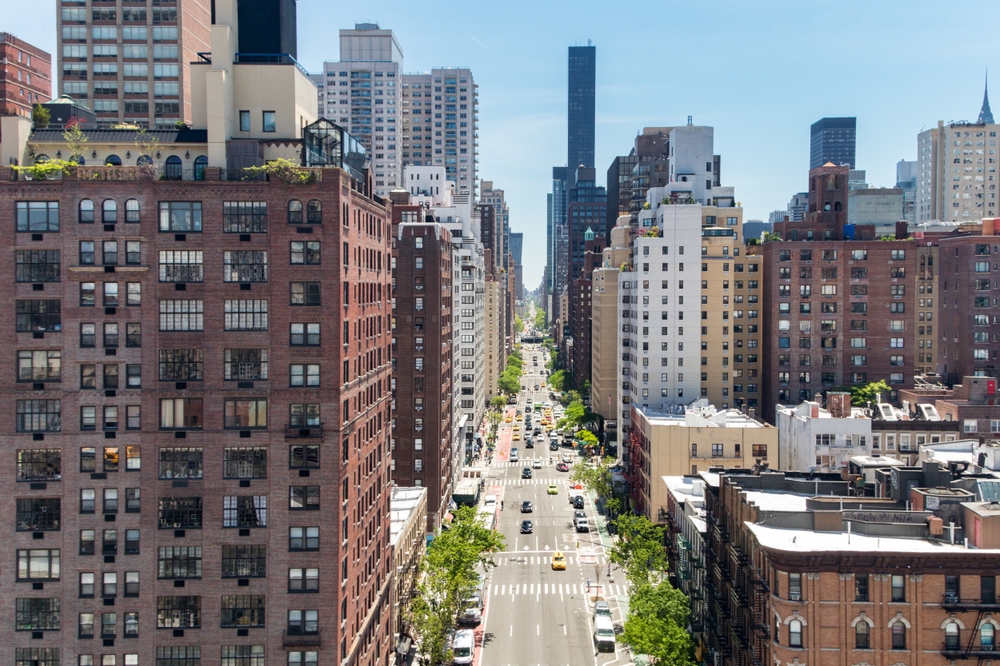More than half the global population lives in cities, and for good reason [1]. With their large, dense populations, cities are full of opportunities. Millions of people move to metropolitan areas every year in search of better job opportunities, in hopes of meeting more people, or simply being “a part of the action”.
There are certainly benefits of living in metropolitan areas, including better access to health care and other commodities, however, some experts are beginning to find that there are drawbacks to living in these more crowded, urban areas. The most important of these discoveries is the impact of urban dwellings on mental health.
Mental Health in Urbanites

Compared to those who live in quieter, more rural, or suburban areas, researchers have found that city dwellers have a much higher instance of mental health issues like PTSD, anger management, and generalized anxiety disorder, as well as more serious conditions like schizophrenia and paranoia [2]. It appears that the urban environment, with its noise, lights, and fast pace, is stressful for your brain, and this puts you at a greater risk for mental health disorders and diseases [3].
The fast pace of city life can also place a lot of pressure on people, particularly young adults who are trying to get their careers started. Millennials, in particular, are often afflicted with “errand paralysis”, a phrase coined by writer Anne Helen Peterson that describes the exhaustion associated with the feeling that we should be working all the time [4]. This extreme mental and physical fatigue prevents us from doing simple tasks like mailing a letter or organizing a desk drawer, and the fast-moving pace of a city that never sleeps can intensify that exhaustion.
Read More: Inside the skinny home that disappears into the tree canopy of a nature reserve
Cities Affect Your Sleep

Stanford University conducted a survey of nearly sixteen thousand people and concluded that the bright lights in the city affect your ability to sleep. The survey found that people with high light exposure were more likely to report fatigue and to get fewer hours of sleep every night.
“Light pollution can be found in any sizable city in the world. Yet, excessive exposure to light at night may affect how we function during the day and increase the risks of excessive sleepiness,” said the authors of the study [5]. This lack of sleep can lead to other health problems as well. Higher amounts of traffic noise and light can cause your levels of the stress hormone, cortisol, to spike, and chronic elevation of cortisol can put a person at a greater risk of cardiovascular disease [6].
How Can You Protect Your Mental Health?

The obvious answer to these problems is to simply leave the city and move to a rural area that has less noise, light, and air pollution. This, of course, is simply not possible for millions of people around the world. If you do live in an urban area, however, there are ways you can protect your mental health.
Use your city’s green space

Research has proven that time spent in nature can help you feel less stressed and improve your mental well-being [7]. Most cities have at least a few parks and green spaces throughout them, so use them! Even just a few minutes a day can lift your mood and calm your mind.
Make friends with your neighbors

Despite the fact that cities have thousands, if not millions, of people living in close proximity to one another, many urban dwellers report feeling lonely or isolated from the people around them. Connecting with others, even if it’s a quick “hello” to your neighbor across the hall, or a knock on their door to borrow a can opener, can go a long way in making you feel more connected to the community around you. Feeling like you’re part of a community can make you feel happier, and even improve your physical health [8].
Read More: Living Off-Grid for Almost 80 Years
Exercise

The mental and physical health benefits of regular physical activity are well-studied and indisputable. Not only does working out help improve mood, but it can improve both your immune and cardiovascular systems. This isn’t just for those without pre-existing conditions, in one study with MS patients walking and yoga improved acute mood and feeling of vigor [9]. To reap even more benefits, consider joining a local fitness group and enjoy your workout with friends- a quick search for free fitness groups in your city will likely provide a myriad of options if you are on a budget.
Talk to someone

If you are feeling stressed or anxious, talking about it with others who are going through similar experiences may help you to deal with it in a healthy way. One benefit of living in the city is that there are a wide variety of professionals available, who have different expertise and may be able to help you work through some of your struggles [2].
Enjoy City Life

City life isn’t all bad- it can be exciting and can be full of opportunities to make connections, meet new people, advance your career, or try new things. Knowing how to take care of your mental health can prevent you from some of the pitfalls of urban living and help you get the most out of the city you live in. If you are struggling, remember that you do not have to be alone in your battle. Be sure to reach out to someone and get help if you need it.
Sources
- https://www.ncbi.nlm.nih.gov/pmc/articles/PMC5374256/
- https://www.healthline.com/health/mental-health/living-in-a-city#1
- https://www.nature.com/articles/nature10190
- https://thriveglobal.com/stories/buzzfeed-millennials-burnout-stress-errand-paralysis-tips-overcome/
- https://www.eurekalert.org/pub_releases/2016-03/aaon-css022216.php
- https://academic.oup.com/eurheartj/article/38/29/2290/3858093
- https://news.ok.ubc.ca/2017/11/02/science-confirms-you-should-stop-and-smell-the-roses/
- https://psycnet.apa.org/record/2014-28833-001
- https://www.ncbi.nlm.nih.gov/pmc/articles/PMC4766946/

